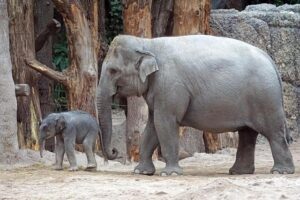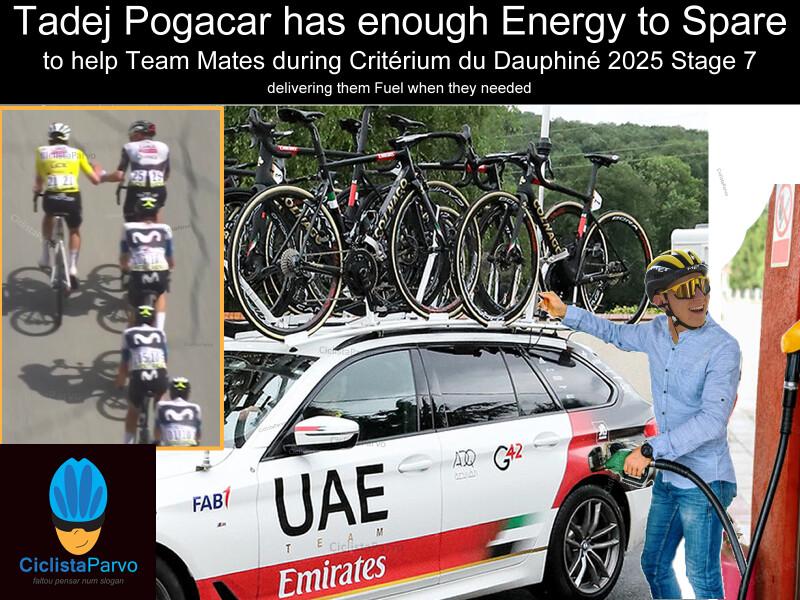Mango Flavor and 120g Per Hour: How Tadej Poga─ıar Fuels His Tour de France Stages
As the peloton winds through breathtaking landscapes and grueling mountain passes during the Tour de France, the specter of fatigue looms over competitors. For Tadej Poga─ıar, the Slovenian cycling sensation and two-time Tour champion, maintaining peak performance is an intricate dance of physical endurance and precise nutritional strategy. In a sport where every ounce of energy counts, Poga─ıar’s fueling routine is distinctive-highlighted by a preference for mango-flavored gels and a meticulous intake of 120 grams of carbohydrates per hour. As the race unfolds, we delve into the science behind his dietary choices and examine how they contribute to his impressive results on one of the world’s most challenging stages. From selecting flavors to calculating caloric needs, join us as we explore the critical role of nutrition in Poga─ıar’s quest for glory in the Tour de France.
Mango Flavour: The Sweet Science Behind Tadej Poga─ıar’s Race Nutrition
Tadej Poga─ıar’s remarkable performance in the Tour de France is not merely a product of his training regimen but is also significantly influenced by his meticulous race nutrition strategy. Specifically, the use of a mango-flavored energy mix has gained attention among cycling enthusiasts and nutritionists alike. This flavorful approach not only enhances the taste of his calories but also plays a crucial role in his overall energy management during races. Each hour of racing demands a careful balance of carbohydrates, electrolytes, and hydration, and Poga─ıar’s choice of 120 grams of carbs per hour is designed to optimize endurance and recovery, allowing him to sustain high-intensity efforts throughout grueling stages.
The science behind such formulation delves into the physiological needs of elite cyclists. With a consumption rate of 120 grams per hour, Poga─ıar ensures that his energy reserves are topped up regularly, mitigating the risk of bonking during long climbs and sprints. A balanced pack typically includes:
- High-Glycemic Carbohydrates: Fast-absorbing, helping to restore energy quickly.
- Electrolytes: Essential for maintaining fluid balance and muscle function.
- Mango Flavoring: Not just a treat for the palate, it encourages consistent consumption.
This flavor profile, while seemingly trivial, has psychological benefits, making the rigors of professional cycling slightly more enjoyable and sustainable under pressure.
Understanding the 120g Per Hour Strategy for Peak Performance
For elite cyclists like Tadej Poga─ıar, efficiency and strategic fuel intake can be pivotal in a grueling stage of the Tour de France. The 120g per hour strategy focuses on maintaining optimal energy levels by consuming this specific amount of carbohydrates. This approach stems from extensive research into how the body utilizes energy sources during high-intensity endurance activities. By consuming a precise blend of carbohydrates, Poga─ıar ensures that he can sustain power output and stave off fatigue as he navigates the arduous climbs and sprints characteristic of the race.
The practical application of this strategy is reflected in Poga─ıar’s nutrition plan, which often includes a variety of sources to meet this carbohydrate quota. The use of energy gels, sports drinks, and easily digestible snacks allows for flexibility while racing. These options not only provide quick energy but also help maintain hydration and electrolyte balance, crucial for performance in challenging conditions. Below is a brief overview of how he might distribute his carb intake during a typical stage:
| Fuel Source | Carbohydrates (g) | Timing |
|---|---|---|
| Energy Gel | 30 | Every 30 minutes |
| Sports Drink | 60 | Throughout the race |
| Whole Fruit (e.g., Bananas) | 30 | Mid-stage |
Expert Recommendations for Athletes on Effective Fueling Techniques
Fueling strategies play a crucial role in optimizing performance during demanding events like the Tour de France. Athletes, like Tadej Poga─ıar, follow tailored approaches to ensure they are adequately energized throughout each stage. To achieve this, nutritionists recommend that endurance athletes consume around 120 grams of carbohydrates per hour, which helps maintain blood sugar levels and prevents fatigue. Among the various fueling options, mango-flavored gels and drinks have gained popularity for their palatability and quick absorption, making them an effective choice during long rides.
The optimal fueling technique often combines both solid and liquid sources to meet the high carbohydrate demands. Here are some effective methods recommended by experts:
- Pre-Ride Meals: A well-balanced meal rich in carbohydrates should be consumed 3-4 hours prior to racing.
- On-the-Ride Nutrition: Utilize a mix of energy gels, bars, and electrolyte drinks for continuous energy supply.
- Post-Ride Recovery: Focus on a carbohydrate-protein blend within 30 minutes of finishing the ride to aid recovery.
| Fuel Type | Benefits |
|---|---|
| Mango Flavored Gel | Easy-to-digest, quick energy boost |
| Electrolyte Drink | Hydration and replenishment of essential salts |
| Energy Bar | Sustained energy and satiety |
To Wrap It Up
In conclusion, Tadej Poga─ıar’s meticulous fueling strategy, characterized by his preference for mango-flavored energy gels and a calculated intake of 120 grams of carbohydrates per hour, underscores the intricate preparation that goes into his performance on one of cycling’s grandest stages. As he navigates the demanding terrain of the Tour de France, Poga─ıar’s approach not only highlights the importance of nutrition in elite sports but also serves as a testament to the evolving science behind endurance racing. With every pedal stroke, he demonstrates that success is not solely dictated by talent and training, but also by the careful orchestration of diet and hydration. As the race unfolds, spectators will continue to watch closely-not just for the thrilling competition on the road, but also for the strategies that fuel champions like Poga─ıar as they strive for victory in the world’s most prestigious cycling tour.











